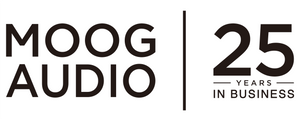The Royer R-10 is a passive mono ribbon microphone designed for use in the studio and on live stages. Hand-built in our Burbank California factory, the R-10’s sound and performance are all-Royer and it handles SPLs of up to 160 dB @ 1 kHz. The R-10’s compact size and mounting system allows for flexible, unobtrusive positioning.
The R-10’s 2.5-micron aluminum ribbon element is formed with our our patented direct-corrugation process and is protected by a 3-layer windscreen system and internally shock-mounted ribbon transducer. The ribbon transducer is wired for humbucking to reject electromagnetically induced noise.
The R-10’s built-in windscreen provides superior protection from air blasts and plosives. It also reduces proximity effect (bass buildup from close miking) so guitar cabinets and acoustic instruments can be close-miked with less bass buildup. The R-10’s internally shockmounted ribbon transducer isolates the ribbon element from shocks and vibrations, increasing the ribbon element’s durability.
The R-10 utilizes a David Royer custom designed transformer for high overload threshold, minimizing saturation at even extremely high sound pressure levels. You’ll never overload an R-10! The mic’s open grill design minimizes standing waves and associated comb-filtering effects and its smooth frequency response, phase linearity and lack of self-distortion make it ideal for all digital recording and live sound formats.
The Sound
Royer ribbon mics are legendary on electric guitar and the R-10 shows some of its best stuff on studio and live electrics, capturing all the low end, midrange warmth and punch guitarists and engineers have come to expect from a Royer. If you want more bite in the highs but don’t want to multi-mic (particularly on live stages where blending microphones can create phase-related problems), the R-10 takes EQ beautifully and we suggest experimenting with your favorite EQ unit or plugin.
The R-10 is excellent on brass and can handle close-miked trumpets, trombones and other brass instruments. Brass records naturally on an R-10, as bright as the musician plays but without the added sizzle or harshness commonly experienced when condenser mics are used on brass instruments.
Close up of mount
Drums are full bodied with realistic (not over-hyped) transients response, and the R-10’s figure-8 pattern conveys superb ambience and depth when used for room miking applications. A compressed R-10 in front of the kit sounds huge and punchy.
R-10 recordings of violins, ukuleles, steel-stringed and nylon-stringed acoustic guitars, banjos and other stringed instruments are warmth and natural and fit into mixes easily. “Airing out” the recorded track by opening up a bit of 12K with an EQ often gives surprisingly good results.
Vocals record record warm and naturally on an R-10, and the EQ-friendliness of the R-10 allows for dialing in completely different sounds with liberal use of EQ. Try experimenting with cutting bass at 100 Hz and opening up 12K by 3 to 6 dB (or more!). Some great vocal performances were recorded on highly EQ’d ribbon mics (Sixpence None the Richer “There She Goes Again” and “Kiss Me” for example). For audio examples of EQ’d vocals, visit our Audio/Video Library.
Royer’s Patented Offset Ribbon Technology
The R-10’s patented offset-ribbon design positions the ribbon element toward the front of the transducer, which allows for high SPL handling on the front (logo) side and the option of a brighter response when recording lower SPL sound sources like acoustic guitar, ukulele and vocals on the back side (3 feet or closer; phase reversed position).
FEATURES
- High SPL capabilities for electric guitar, brass and other close miking applications
- Multi-layered wind screen provides superior protection to ribbon element
- Internally shock-mounted ribbon transducer gives increased durability
- Passive design and custom transformer minimize high SPL overload
- Hum-bucking transducer design delivers extremely low residual noise
- Ribbon element not affected by heat or humidity
- Absence of high-frequency peaks, “ringing” and phase shifts
- Equal sensitivity from front or back of the element
RECOMMENDED APPLICATIONS
- Close miking in the studio and on live stages
- Electric & acoustic guitars
- Drum overheads, kick drum (see manual for position), room miking
- Percussion instruments
- Brass, horn sections
- Strings - solo & sections
- Acoustic piano
- Vocals


